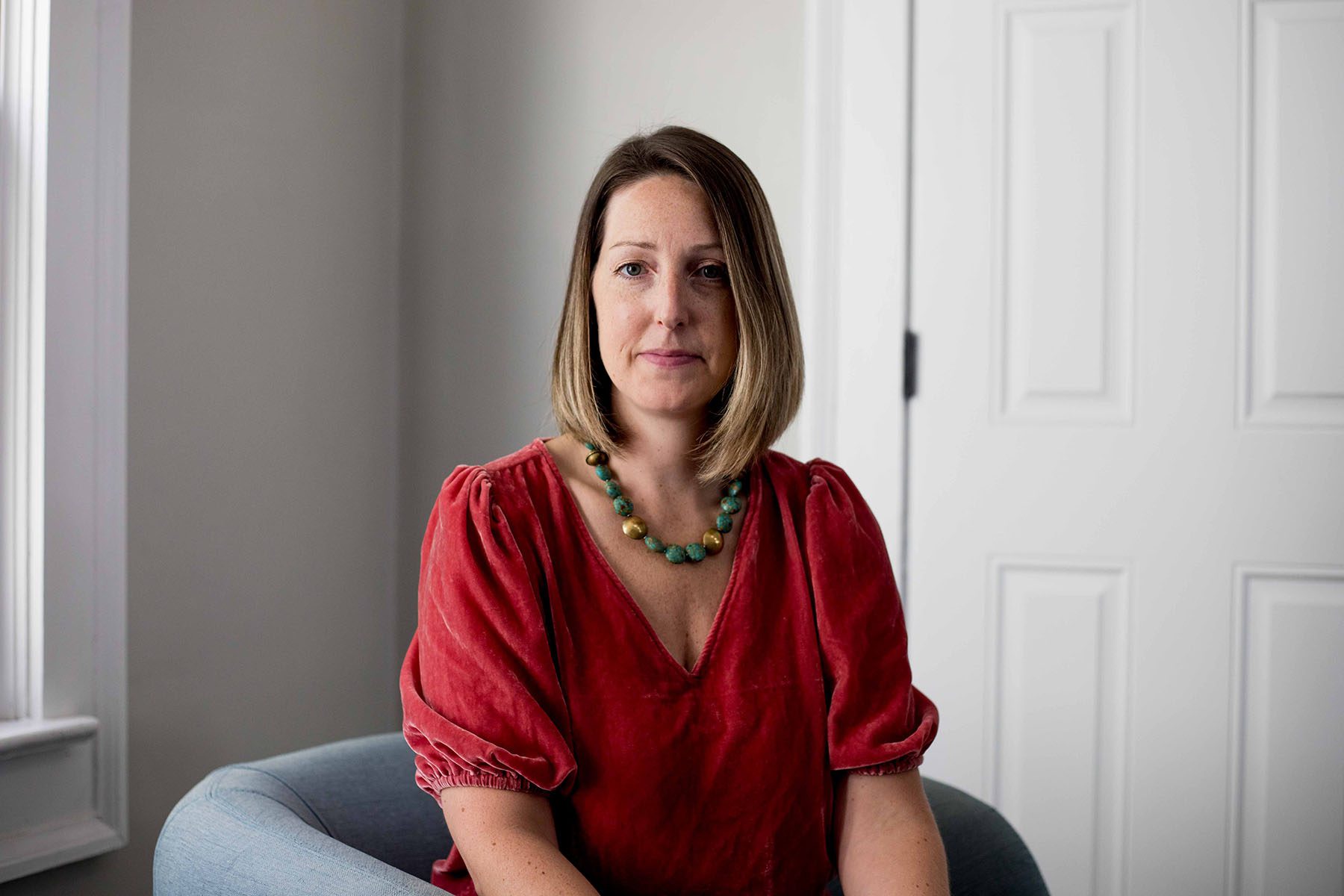Weeks after Roe v. Wade was overturned, Dr. Caitlin Bernard made national headlines when she disclosed that she had provided an abortion to a 10-year-old girl who had been raped. That attention landed Bernard in the middle of an investigation by Indiana Attorney General Todd Rokita into whether she properly documented the abortion and if she violated privacy laws. Now a judge will decide whether Rokita can seek other patients’ medical records as part of the investigation.
Monday night concluded the second part of an emergency hearing scheduled to determine whether Bernard will be granted a preliminary injunction to block Rokita from continuing to subpoena medical records from Bernard and her medical partner as part of his ongoing investigation into her. Rokita’s investigation continues even after Bernard proved that she had properly documented the abortion and that she had not violated patient privacy laws when she told reporters about the 10-year-old.
In a statement after testifying Monday, Bernard said, “As a physician, I never imagined that I would be in the position to engage in a legal fight to protect the rights of women and girls to not have their private medical records released for political purposes. But nonetheless, I feel strongly that this fight — the fight for physicians to compassionately provide abortion care to every single person who needs their care and their patients to access safe, legal abortion care, free from fear of criminalization — is worth waging.”
The judge’s decision, expected next week, will conclude whether Rokita can use what Bernard alleges are fraudulent complaints to continue the investigation. If Rokita is blocked, it would bar his office from using such complaints to investigate other medical providers.
Earlier this month, Bernard and her medical partner filed suit against Rokita in Indiana’s Marion County. The suit claims that the consumer protection complaints that have been filed against Bernard — the foundation of Rokita’s investigation into her — are from individuals who have never interacted with her personally. In Bernard’s filing of her suit against Rokita, her legal team outlines that seven complaints were filed against Bernard between July 8 and 12 of this year. Excerpts from the complaints show that they were not filed by patients of Bernard’s or Indiana residents.
The consumer protection statute in Indiana applies to only consumers from the state who have acquired a good or service within the state. These out-of-state complaints, according to Bernard’s suit, should not be allowed to serve as a basis for any kind of consumer protection investigation.
In a statement issued the day after the emergency hearing concluded, Rokita justified the ongoing investigation into Bernard.
“If the doctor did not choose to use her patient, a 10-year-old rape victim, to further her own political agenda, we would not be here today. There is no defensible reason for this doctor to shatter her 10-year-old patient’s trust by divulging her abortion procedure to a reporter so her traumatizing experience could be used in the polarizing abortion debate on the heels of Dobbs,” Rokita said in the statement.
But Bernard’s legal team believes it is Rokita politicizing health care. “Here we have the attorney general going on Fox News, saying a bunch of things about Dr. Bernard, and are now having people from all across the country filing complaints who have never met Dr. Bernard and have never purchased any goods or services from her. They are not, by definition, consumers,” Bernard’s attorney Kathleen DeLaney told The 19th.
DeLaney said it’s unfair to patients who have not consented to having their private health information reviewed by the state. “These are people with no connection to these patients, and the attorney general is using these third-party complaints as an excuse or justification to go after the most personal documents you can imagine,” DeLaney said.
Last week, Bernard’s lawyers also filed for an emergency injunction to ban Rokita’s office from continuing their investigation of her and from starting any future related investigations while they await a judgment on the case.
Nicole Huberfeld, a professor specializing in health law at Boston University, explained that subpoenaing medical records from Bernard’s patients butts up against laws that have recognized the confidentiality between doctors and patients. Legal precedent has held that exceptions to this confidentiality need to be clear-cut: things like public health surveillance in light of an infectious disease outbreak in a given community. Huberfeld also pointed out that past attempts to create exemptions related to abortion have not held up in court, such as in 2003’s case of Aid for Women v. Foulston, when Kansas’ then-attorney general made it mandatory to report all sexual activity among minors under the age of 16. That would have meant that abortion providers would need to report abortions performed on minors to the state or face liability of being in violation of child abuse reporting laws. The Kansas Supreme Court blocked the interpretation.
“At the end of the day, the court said, ‘No you can’t use general laws to create exemptions to the rule that medical information is private and confidential,’” Huberfeld said, adding that consumer protection laws are not designed to be applied in a health care setting, a field that is already highly regulated.
“Consumer protection laws … do not appropriately apply to patient-provider relationships, and using these broad consumer protection laws on that relationship that is already so heavily regulated is a poor fit, and opens the door to revealing confidential medical information unnecessarily,” Huberfeld said.
Tanya Washington, a law professor at Georgia State University, said that state officials and medical providers across the country will all be closely watching how Bernard’s suit moves through the legal system. Attorney generals in other states could try to utilize things like consumer protection laws to put a chilling effect on abortion providers. And providers will be watching to see what legal tools are available to them to fight back against threats or harassment from their own state attorney generals.
“I’m glad to see Dr. Bernard challenging this exercise of authority because I think we need to define the authority of our elected officials and state officials in the context of this dynamic legal landscape, because there are so many gray areas now,” Washington said. “We need to know when overreach is occurring and how to combat it. It’s these kinds of lawsuits that are going to help us get more definition around where the guard rails are for attorney generals and other state officials when they exercise their authority in a way that jeopardizes patient privacy and also interferes with the rights of medical providers who are regulated and licensed to practice their discipline and provide much-needed care.”
Washington said she will also be curious to see the ways in which Bernard’s suit speaks to state sunshine laws, particularly how they will be used and interpreted when involving private citizens in enforcing state laws. Bernard’s suit and Monday’s hearing for an emergency injunction raises the question, Washington said, of how “much protection do patients have and how much protection do medical professionals have when either state officials or deputized citizens are seeking to investigate the practice of reproductive health care.”
It remains to be seen whether attorneys general in other states hostile to abortion access will turn to consumer protection laws as a new avenue for creating additional barriers to abortion.
“If any patient knew that their medical records could be reviewed by the state because of a person unrelated to them with a political agenda filing a complaint, that will affect how much patients feel comfortable confiding in doctors, to be honest with their providers about what’s affecting their health,” DeLaney said. “They will be reluctant to have open and candid conversations.”
DeLaney said she imagines the chilling effect could go beyond that, though, if the utilization of third-party consumer protection complaints is allowed to be used for state investigatory review of patient medical records. “Doctors will be worried about what they put in the chart if it can end up in the hands of politicians. The implications for the future of standards of medical care are very significant. Why should we think they will stop at abortion.”







